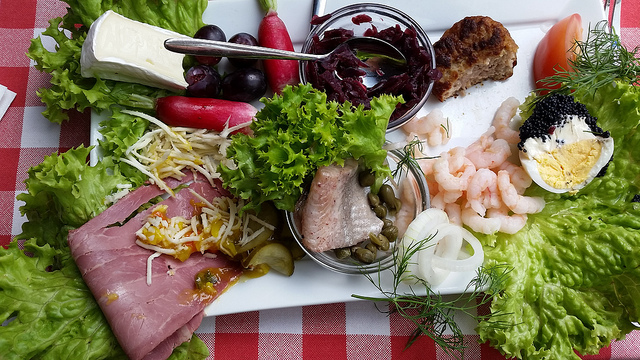
Are Some High Fat Foods Actually Good for You?
Are Some High Fat Foods Actually Good for You?
When you’re trying to stay active or maintain a healthy weight, the word ‘fat’ can send shivers down your spine. But what if I told you that fat doesn’t have to be a dirty word? In fact, plenty of food which is advertised as ‘low-fat’ is far from healthy, containing high amounts of sugar, carbohydrates and calories too. Conversely, many high fat foods can be a welcome addition to your menu and adopted as part of a healthy and balanced diet.
But how can you tell the difference between good fats and bad fats?
Trans Fats
If I’ve got you all excited and reaching for a take out menu, I’m sorry to disappoint. Health professionals and nutritionists alike agree that the kinds of trans fat found in fast food, margarines and pre-packaged baked goods spell nothing but trouble for your health. Trans fat is made by adding hydrogen to vegetable oil, and is strongly linked to cancer and heart disease. While in countries like the US, trans-fat is soon to be illegal, and in many European countries clearly labeling products which include trans fats is part of a food company’s obligation to the consumer, Australia’s health ministers have come under criticism in the past for not following suit.
If you want to stay on top of your intake, avoid fried or fast foods and make sure to look for ‘partially-hydrogenated oil’ amongst the list of ingredients when you buy packaged baked goods, snack foods and pre-mixed products.
Monosaturated and Polyunsaturated Fats
On the other side of the scale, are the good kinds of fats, which everyone should be making space for in their weekly diets. Foods which are good sources of healthy fat include avocados and olives, nuts and seeds, and fatty fish.
The healthiest types of polyunsaturated fats are omega-3 fatty acids. These are found in salmon, herring, mackerel, cod and anchovies. For vegetarians, you can find these to a lesser extent in brussel sprouts, walnuts, spinach and kale. If you do not regularly eat fish, you may want to choose a supplement to help maintain a healthy balance of essential fatty acids and omega-3s.
Saturated Fat
Somewhere in the middle on the health scale are saturated fats. These come from animal sources, such as red meat, dairy products and poultry. While organisations such as The Heart Foundation suggest that saturated fats can increase your risk of heart disease and stroke, raising your blood pressure and cholesterol, attitudes towards these types of fat are changing.
Recently, an analysis of 16 different studies from the European Journal of Nutrition showed that there may not be a benefit from reaching for low or non-fat dairy products. On the contrary, it was actually whole milk dairy products which were linked to lower obesity levels. This may be because they keep you full for longer, and satisfy you faster, meaning that you consume less calories overall.
There is also truth to the idea that a small amount of saturated fat with a meal might encourage you to eat more healthily overall, for example putting a small amount of butter onto your vegetables.
In terms of meat, experts are now suggesting that rather than eliminating it from your diet altogether, consumers should look for free-range poultry and grass fed meat products, as well as organic dairy products. These are a much healthier choice and provide less saturated fats.
Still concerned about keeping your saturated fats intake at the 7% recommended by the Heart Foundation? You’re in luck. All pre-packaged food in Australia must declare the amount of saturated fat inside, making it easier to monitor where your levels are at.
So, there you have it. Not all fats are created equal. Knowing your fats means being aware of what kinds of fat to avoid altogether, which to eat in moderation, and which to include as part of your regular diet.













